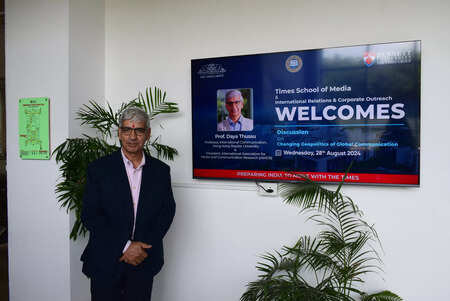Intermittent fasting: Why it's not a long-term solution
Times of Bennett | Updated: Apr 05, 2023 10:08

By Dhriti Loomba
Intermittent fasting has become a popular trend in recent years, with many claiming it to be a sustainable way to lose weight and improve health. While it may provide some benefits in the short term, the truth is that it's not a sustainable long-term solution.
One of the biggest issues withintermittent fasting is that it can be difficult to maintain over an extended period. It requires a significant amount of discipline and can be challenging to integrate into daily life, especially for those with busy schedules. Moreover, it can lead to feelings of deprivation and ultimately result in binge eating.
Another problem with intermittent fasting is that it can cause fluctuations in blood sugar levels, which can lead to mood swings, fatigue, and irritability. This can negatively impact productivity and overall well-being, making it harder to stick to the diet.
Additionally, intermittent fasting may not provide the body with all the necessary nutrients it needs to function optimally. With restricted eating windows, it can be challenging to consume a balanced diet with all the necessary vitamins and minerals.
Furthermore, intermittent fasting may not be suitable for everyone, especially those with pre-existing health conditions or who are pregnant or breastfeeding. It's essential to consult a healthcare professional before starting any new diet or exercise regimen.
In conclusion, while intermittent fasting may provide some benefits in the short term, it's not a sustainable long-term solution. It requires a significant amount of discipline and can cause fluctuations in blood sugar levels, leading to mood swings and fatigue. It can also be challenging to consume a balanced diet with all the necessary nutrients. Ultimately, it's crucial to focus on creating healthy habits that are sustainable in the long run, rather than relying on fad diets.
One of the biggest issues with
Another problem with intermittent fasting is that it can cause fluctuations in blood sugar levels, which can lead to mood swings, fatigue, and irritability. This can negatively impact productivity and overall well-being, making it harder to stick to the diet.
Additionally, intermittent fasting may not provide the body with all the necessary nutrients it needs to function optimally. With restricted eating windows, it can be challenging to consume a balanced diet with all the necessary vitamins and minerals.
Furthermore, intermittent fasting may not be suitable for everyone, especially those with pre-existing health conditions or who are pregnant or breastfeeding. It's essential to consult a healthcare professional before starting any new diet or exercise regimen.
In conclusion, while intermittent fasting may provide some benefits in the short term, it's not a sustainable long-term solution. It requires a significant amount of discipline and can cause fluctuations in blood sugar levels, leading to mood swings and fatigue. It can also be challenging to consume a balanced diet with all the necessary nutrients. Ultimately, it's crucial to focus on creating healthy habits that are sustainable in the long run, rather than relying on fad diets.











